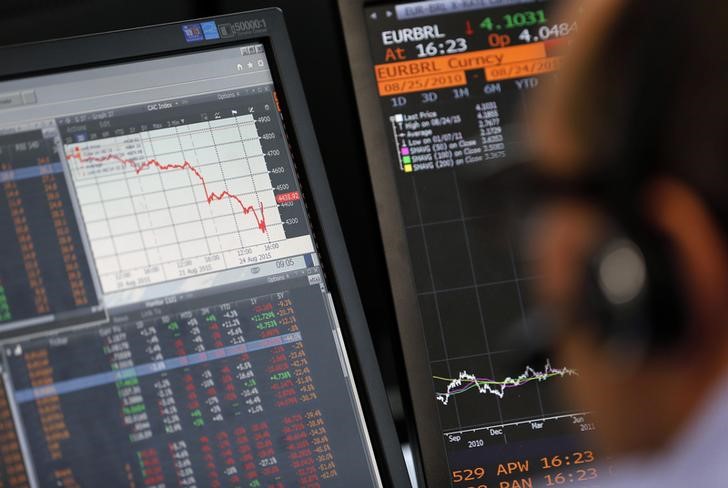By Trevor Hunnicutt
NEW YORK (Reuters) - Investors showed fresh willingness to buy risky financial assets in the latest week, delivering U.S.-based emerging-market stock funds their largest inflows in more than three years, Lipper data showed on Thursday.
The funds, which invest in more speculative global markets, took in $3 billion during the week ended March 23, their largest intake since January 2013 and the third-greatest week of inflows since Lipper record-keeping began in 1992.
The reassessment came as fears about China's slowdown receded and the U.S. Federal Reserve scaled down its expectations of U.S. interest-rate increases to two hikes from an estimated four hikes through 2016.
"To an investor that sounds good," said Tom Roseen, head of research services at Lipper. "We've had a marvelous five weeks and people now are going to sit back and evaluate where we are."
U.S.-based high-yield junk bond funds attracted $2.2 billion during the week, their sixth straight week netting new cash. Funds focused on higher-grade corporate bonds took in $1.3 billion, according to Lipper.
Overall, U.S.-based taxable bond mutual fund and exchange-traded funds pulled in $5.9 billion, their ninth straight week of inflows. U.S.-based stock funds netted nearly $2 billion in the week, according to the fund research service.
Investors withdrew $18.7 billion from U.S.-based money-market funds, one week after those relatively low-risk funds posted nearly $36 billion in outflows. Investors withdrew $360 million from Treasury funds, another safe haven, during the same period, Lipper said.
Pension plans, foundations and endowments were among the investors moving funds from cash into emerging market funds like iShares MSCI Emerging Markets ETF (NYSE:EEM) in recent weeks, according to Paul Young, a spokesman for the fund's issuer, BlackRock Inc (NYSE:BLK).
EEM returned 10.5 percent over the one-month period that ended Wednesday, and ETFs in the category have delivered nine consecutive weeks of positive returns, according to Lipper.
Among stock funds, investors were focused on opportunities outside the United States. U.S.-based funds focused on domestic shares shed $1.6 billion during the week, while stock funds focused on international companies attracted $3.6 billion.
The flow data did not include transactions on Thursday, when U.S. stocks broke a five-week winning streak and a strengthening dollar weighed on commodity-related shares.
U.S.-based stock mutual funds posted net outflows of $1.5 billion while stock ETFs attracted $3.5 billion over the weekly period, Lipper said.
